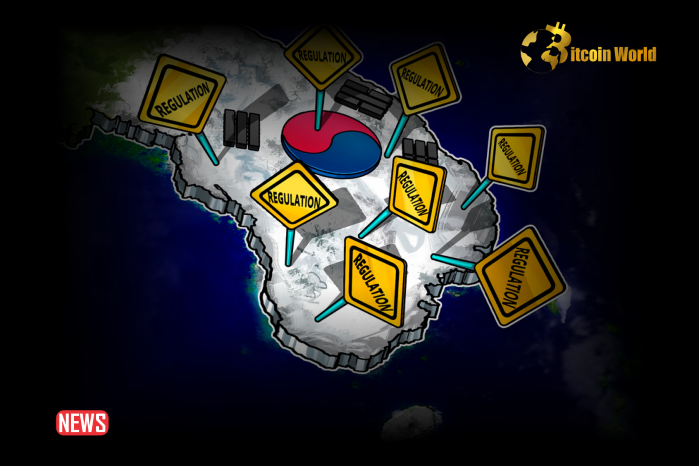South Korea’s cryptocurrency landscape is on the cusp of significant change. With new regulations set to take effect on July 19, exchanges are scrambling to comply, all while battling a surge in crypto-related crime. What does this mean for investors and the future of crypto in the nation? Let’s dive in.
South Korea’s Crypto Exchanges Gear Up for New Regulations
A consortium of 20 South Korean crypto exchanges, spearheaded by the Digital Asset Exchange Alliance (DAXA), is actively preparing for the implementation of new investor protection regulations. These regulations, effective July 19, aim to create a safer and more transparent environment for crypto trading.
- Compliance Focus: Exchanges are reevaluating listed cryptocurrencies to ensure they meet the new standards.
- Investor Protection: Measures like cold storage for deposits and insurance programs are being implemented.
- DAXA’s Role: DAXA is providing guidelines to member exchanges, emphasizing issuer reliability and regulatory compliance.
Will There Be Mass Delistings?
The big question on everyone’s mind: Will these new regulations lead to a mass delisting of cryptocurrencies? DAXA is reassuring stakeholders that this is unlikely. The organization emphasizes that the reviews are designed to uphold regulatory standards without causing widespread market disruption.
Existing tokens will undergo reevaluation within a six-month grace period to ensure compliance. DAXA has stated that all new token listings will adhere to the Protection of Virtual Asset Users Act.
Special Screening for Established Digital Assets
Good news for established cryptocurrencies! A more lenient screening process, termed the “alternative screening plan,” will apply to cryptocurrencies traded for over two years in recognized overseas virtual asset markets with robust regulatory frameworks. DAXA is currently identifying eligible markets, including those affiliated with the International Organization of Securities Commissions (IOSCO).
Crypto-Related Crime on the Rise
The push for stricter regulations comes amidst a concerning rise in crypto-related crime in South Korea. The Korea Financial Intelligence Unit (KoFIU) projects that South Korea will have approximately 6 million crypto investors by mid-2024, constituting about 12% of its population. This surge in investor numbers coincides with a notable increase in criminal activities.
Korean digital asset exchanges reported almost 50% more suspicious transactions in 2023 compared to 2022, according to the KoFIU.
The Virtual Asset User Protection Act
South Korea’s inaugural crypto legislation, the Virtual Asset User Protection Act, seeks to combat illegal activities, enforce transparency, and safeguard user investments. Key provisions include:
- Mandating exchanges to store over 80% of deposits in cold wallets.
- Requiring participation in insurance programs for user compensation in case of security breaches.
South Korea’s Crypto Landscape: A Look at the Numbers
South Korea is a major player in the global crypto market. The South Korean Won ranks as the most traded fiat pair, exceeding $456 billion in trading volume in the first quarter of the year. Upbit, the country’s largest exchange, consistently ranks among the top 20 exchanges worldwide by daily volume.
Looking Ahead
As South Korea solidifies its regulatory framework, the global crypto community is watching closely. The nation’s commitment to fostering a secure and compliant digital asset ecosystem could set a precedent for other countries to follow.
The new regulations, while potentially disruptive in the short term, are ultimately aimed at creating a more sustainable and trustworthy crypto market in South Korea. By cracking down on crime and prioritizing investor protection, South Korea is positioning itself as a leader in the responsible development of the digital asset industry.
Disclaimer: The information provided is not trading advice, Bitcoinworld.co.in holds no liability for any investments made based on the information provided on this page. We strongly recommend independent research and/or consultation with a qualified professional before making any investment decisions.




